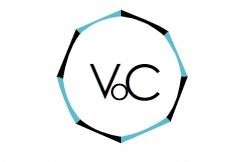 Picture by Steve Buissinne from Pixabay
Picture by Steve Buissinne from Pixabay
Debt consolidation is refinancing your previous credit, the place a lender merges a number of credit into one mortgage and repays off the previous money owed. You’ll find yourself with one mortgage with new phrases from one lender solely.
Whereas debt consolidation has its benefits, like permitting you to have decrease curiosity and solely take care of one lender, it additionally comes with a set of disadvantages. Considered one of these disadvantages is an impact in your credit score rating. Right here’s how debt consolidation might convey a toll to your total credit score rating;
Laborious Inquiries
A tough inquiry or arduous pull occurs when a person requests entry to your credit score report once you apply for credit score. Once you apply for debt consolidation, the lender desires to take a look at your credit score historical past and scores earlier than merging the loans. The train sheds some mild on the form of creditor you’re and helps set your new credit score phrases.
The issue with arduous inquiries is that they negatively influence and decrease your rating by at the least 5 factors. One or a number of arduous inquiries won’t have a big influence in your credit score rating, however a number of arduous inquiries will certainly give your credit score rating a dent.
To beat this, you first want to verify your credit score rating earlier than making use of for any debt consolidation. Let this be your information to the most effective bank card or mortgage for consolidation. Second, don’t apply for a number of new accounts hoping that one will undergo. All these lenders are sure to run a tough inquiry inside the similar interval, resulting in quite a few damaging factors. Third, solely apply for a credit score or mortgage switch for what you’ll be able to afford.
Laborious inquiries keep in your credit score report for a 12 months or extra. Which means a number of arduous inquiries will probably be a pink flag to future lenders.
Low Common Credit score Age
Debt consolidation interprets to a brand new credit score account like a brand new private mortgage or bank card account. When calculating your common credit score age, lenders often take into account all of your credit score accounts, together with a brand new credit score account. Since a brand new credit score account doesn’t have any optimistic factors but, it is going to quickly decrease your common credit score age.
Nevertheless, because the account ages and also you make well timed funds, the account will begin gaining optimistic factors. In flip, your common credit score age will begin enhancing.
New Money owed
After debt consolidation, it’s best to restrain your impulse spending habits and go away the older credit score strains alone.
It’s a relieving feeling once you get a possibility to settle a number of credit and consolidate all into one with higher compensation phrases. However that shouldn’t be a gate go to extra spending utilizing the older credit score limits. Make sure that you take away any computerized subscriptions and funds from these accounts.
Debt consolidation will increase the general obtainable credit score quantity, which lowers the credit score utilization ratio. A decrease credit score utilization ratio interprets to a greater credit score rating. So, should you begin accumulating new money owed from the previous credit score accounts, your credit score utilization ratio is sure to go up. That, plus the brand new consolidated debt, will certainly enhance your credit score utilization ratio, which can decrease your credit score rating.
Don’t Shut Outdated Credit score Accounts
Spooky because the earlier level sounds, it doesn’t imply it’s best to shut your previous credit score accounts. Truly, closing these accounts will nonetheless hurt your credit score rating, because it impacts your credit score utilization ratio.
Let these accounts stay open, the place lenders can see that the money owed are paid off. Once you shut previous accounts, any balances or historical past will most likely present as “N/A” as an alternative of “Zero,” affecting the credit score utilization ratio.
Debt consolidation helps relieve some weight off your total money owed, particularly when you find yourself fighting lots of debt. In such a state of affairs, consolidating may allow you to get higher credit score phrases, like decrease curiosity and a greater compensation time period underneath a brand new lender. Nevertheless, it does have a draw back.
You’re more likely to have an effect on your credit score rating by the arduous inquiries, raking up new money owed after the consolidation, and reducing your common credit score age. Additionally, should you default on the consolidated debt, you’ll have an effect on your credit score rating and possibly change into delinquent. However should you can sustain with the funds and preserve gaining these funds, the damaging impacts in your credit score rating will begin enhancing.





